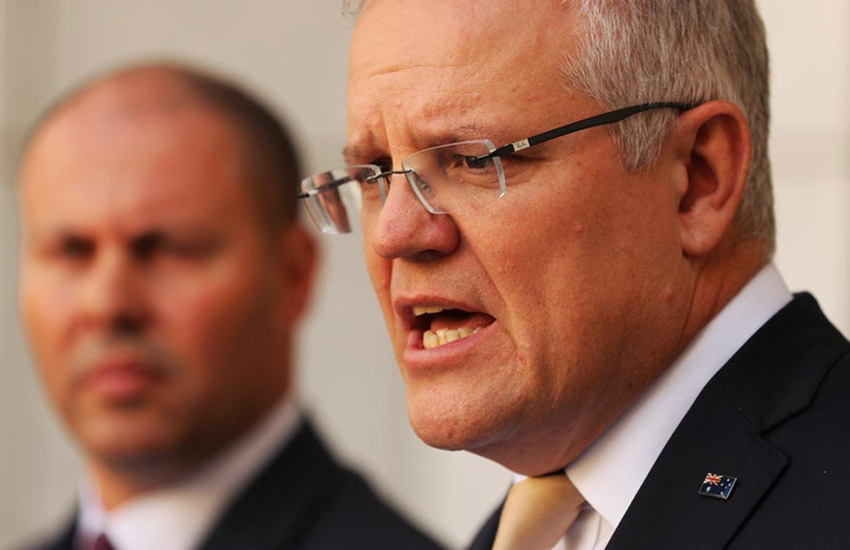The highest inflation figure for two decades will hit small businesses hard with flow-on effects on wages and the costs of capital, the accounting professional bodies said on Wednesday (27 April).
Reacting to the annual figure of 5.1 per cent, spokespeople from CPA Australia, CA ANZ and IPA said accountants would need to factor in increased input costs for clients but also a big dose of uncertainty about how long inflation would last.
You’re out of free articles for this month
Gavan Ord, senior manager, business and investment policy at CPA Australia, said the result showed we were going down the same CPI path as other developed economies.
“Australia’s inflation rate, while increasing over the last few quarters, has lagged behind Europe and the US,” he said. “It looks like that’s changing, as the scale of this increase is now comparable to those markets.”
With the RBA due to determine its rate decision for May next week, pressure was mounting for an early rise.
“This certainly increases the likelihood that the RBA will raise interest rates next week. Given the size of this increase, it would be a bit unusual to hold interest rates steady,” Mr Ord said.
The RBA has raised rates during an election campaign before, in 2007, but has held them steady at 0.1 per cent since November 2020.
Tony Greco, general manager technical policy at IPA, said that the inflationary genie was now out of the bottle and if the RBA did raise rates, it would confirm market increases.
“Inflationary pressures have created more uncertainties going forward for businesses,” he said.
“The cost of capital has been going up outside of the official cash rate so if the RBA moves next week, it will be consistent with what is happening in many other parts of the world.
“The cost of capital is a business cost, so businesses need to factor into their price structures the impact of future rate hikes just like any other input costs.
“The impact will depend on the level of borrowings used to finance the business so the impacts will not be uniform across the economy, but highly leveraged operations will be exposed.”
Michael Croker, tax leader at CA ANZ, said companies would need to adjust their forward estimates and fuel price was one of the great unknowns, with automotive fuel a major contributor to the CPI result with an 11 per cent rise.
“From an accountant’s perspective, high inflation creates numerous issues for business performance. Revised costings for inputs and outputs are the most obvious, as well as projections for 2022-23 budgeting,” Mr Croker said.
“The difficulty with the latest inflation figures is judging the longevity of higher fuel prices. The likelihood of peace in Ukraine remains highly uncertain, and Australian excise cuts are only temporary.
“Accountants are conservative by nature and will likely factor in ongoing higher transport costs, which in turn feeds into other business costs.”
Mr Ord said one saving grace was that recent budget measures, which could have a downward influence on inflation, were yet to flow through to the number.
“The latest CPI figure doesn’t reflect the impact of recent budget announcements. For example, the halving of fuel excise and one-off cash payments, which start hitting the bank accounts of pensioners and other social security recipients today,” Mr Ord said.
But he said accountants should now be telling businesses to factor in much larger wage rises.
“When CPI goes up, real wages go down. This reading is likely to put strong upward pressure on wages,” he said.
“We recommend practitioners work with their business clients to help them understand the potential impact of a 5 per cent wage rise. That doesn’t mean such a wage increase is locked it, it just means they need to consider what that could mean for their business.”
Mr Greco agreed that the flow-on effects would include wages while a rise in the official cash rate would also impact everything from exchange rates through contracts with CPI clauses (for example, leases, price increases built into agreements, government levies) and valuations.
“So the impacts are not isolated and to some extent will start to feed into more inflationary impacts if not contained,” Mr Greco said.
Mr Croker said the result had wider implications for the government’s tax-raising strategy.
“In a federal election context, the CPI will again raise questions for political leaders about the impact on the cost of government-provided goods and services, and whether the tax system is robust enough,” Mr Croker said.
While wage inflation meant bracket creep, with more workers entering higher tax brackets, the real value of income tax collections decreased with rising prices unless the tax was designed to increase by reference to inflation.
“On the other hand, the tax base is less affected by inflation if the particular tax is a percentage of a transaction’s nominal value at the time of the transaction – for example, GST,” Mr Croker said.
But he said that the GST tax base was impacted by a range of exemptions that undermined its effectiveness as a revenue gatherer and eventually that would become an issue.
“Australia is already running structural deficits that are expected to continue beyond 2033. Inflation increases will only increase those deficits. Holistic tax reform that takes into account inflation on government spending can’t remain in the too-hard basket – it needs to be addressed sooner than later,” Mr Croker said.

 Login
Login







